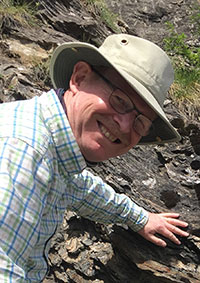Applied Petroleum Geology
Lecturers: Martin Fleckenstein
This three-day seminar will cover the application of geoscience concepts to hydrocarbon exploration and development. The methods and techniques discussed in this course are equally applicable and required for the rapidly emerging energy transition solutions like deep geothermal, hydrogen storage and carbon capture and storage. The first part will focus on the concept of play-based exploration, the second part will be dedicated to reservoir modeling and field development planning. The primary objective of the course is to highlight the role and the responsibility of the geoscientist in subsurface projects ranging from hydrocarbon exploration and development to low carbon energy solutions. Students will get an impression how scientific concepts and methods in sedimentology, structural geology and geochemistry will be applied in a typical work environment, demonstrating how geoscience drives commercial decisions. Since state-of-the-art subsurface projects are always a team effort, students will also be familiarized with the interface to other disciplines like reservoir and drilling engineering. An important element of the seminar will be a “real-life” strategy game where teams are requested to develop bidding proposals for subsurface licenses based on a set of subsurface data and realistic cost estimates.
Students will acquire knowledge on the basic principles of play-based exploration and the basic concepts of risk management in exploration. In the field development session, the course will provide a basic understanding of the impact of geological modeling on reserves and resources, the prediction of fluid flow in the reservoir and the resulting infrastructure decisions. Last not least the course will touch on success factors and pitfalls of effective teamwork.
Case history on geothermal exploration
processing of tasks
- Rose, Peter (2001): Risk Analysis and Management of Petroleum Exploration Ventures (AAPG Methods in Exploration No. 12)
- Tearpock, D.J. and Bischke, R.E. (1991): Applied Subsurface Geological Mapping (Prentice Hall)
- Jahn, Cook and Graham (2008) Hydrocarbon Exploration & Production (Developments in Petroleum Science)
1st SWS: Role of geoscientists in the E&P industry
2nd SWS: Hydrocarbon demand/supply and climate change
3rd SWS: Introduction to play based exploration
4th SWS: Uncertainty and risk analysis in exploration
5th SWS: Resources, reserves and field development
6th SWS: Introduction to project management
7th SWS: Principles of effective team work
8th SWS: Practical training
9th SWS:
10th SWS:
11th SWS:
12th SWS:
13th SWS:
14th SWS:
Basic Data
05-MMG-MR1-a2
Study Program
Master Marine Geosciences
Module Name
Deep-Sea Resources
Course Type
Lecture, Exercise (L+E)
First Year of Study
4 CP
3 SWS
Winter Term
Course Language
English
Contact Person

Applied Petroleum Geology
Prof. Dr. Martin Fleckenstein
R
Phone: +49 6021 3289228
mfleckenstein uni-bremen.de
uni-bremen.de
Applied Petroleum Geology
Prof. Dr. Martin Fleckenstein
R
Phone: +49 6021 3289228
mfleckenstein uni-bremen.de
uni-bremen.deLecturer

Applied Petroleum Geology
Prof. Dr. Martin Fleckenstein
R
Phone: +49 6021 3289228
mfleckenstein uni-bremen.de
uni-bremen.de
Applied Petroleum Geology
Prof. Dr. Martin Fleckenstein
R
Phone: +49 6021 3289228
mfleckenstein uni-bremen.de
uni-bremen.de
